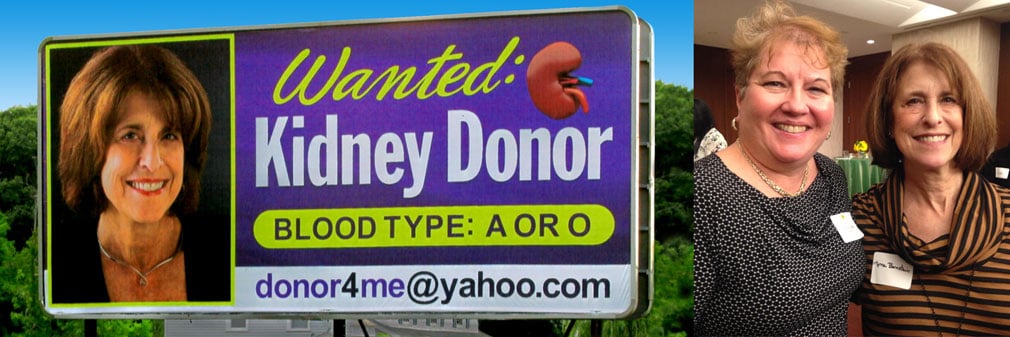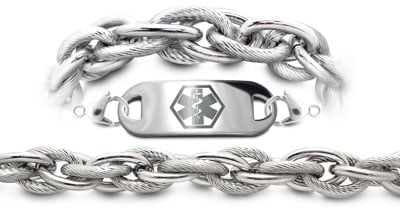
To see and hear Myrna and Jerianne in a TV news interview click image above. Jerianne on left. Myrna on right.
By Michelle Wexler for Medical ID Fashions
Myrna's Bracelet: Vita Robusta 1974
The Dilemma
ALBANY, NY — While traveling the vast highways of New York, among the endless stream of commuters, New Yorkers expect to hear their GPS say: “you have reached your destination”. But for Myrna Bernstein, struggling to find a kidney donor, she found herself a long, long way from her destination. For her, finding a lifesaving donor—let alone getting the attention from even one of those faceless commuters—was nearly impossible.
In fact, according to the American Journal of Transplantation, organ donation rates in New York are the 3rd lowest in the country, leaving more than 10,000 men, women, and children on the transplant list alone. Nationwide it doesn’t get any better with 123,000 waiting, leaving 21 souls to die everyday—indicating an obvious discrepancy in the supply of willing donors.
Months, and very often, years can go by before people on the Organ Transplant List are called. Once her kidney function fell below 10%, Myrna was placed on that very same list—a seemingly endless one. That, unfortunately, was the easy part. Being placed on a list that long, she may as well have been in the purgatory of transplant surgery—eligible for the procedure, but with no potential kidney in sight.
Luckily, most New York commuters have their driver’s license though, which left but a glimmer of hope. This meant the majority of people have at least heard “organ donation” muttered in their local DMV. So Myrna decided to reach out to that elusive NY crowd on their busy commutes, with a plea to extend her life, on a creatively unexpected billboard.
The "Ah-Ha" Moment
Easier Donor Surgery
The Uncertainty
The Surgical Process
Life Goes On...
Dispelling the Myths about Organ Donation
Where to Go for Help
Protect your kidney with a medical bracelet
Paramedics and doctors need to know that you only have one kidney as a donor. If you're a recipient, they need to know that you're on anti-rejection meds which may affect your emergency treatment. And don't forget to add all medical conditions.
